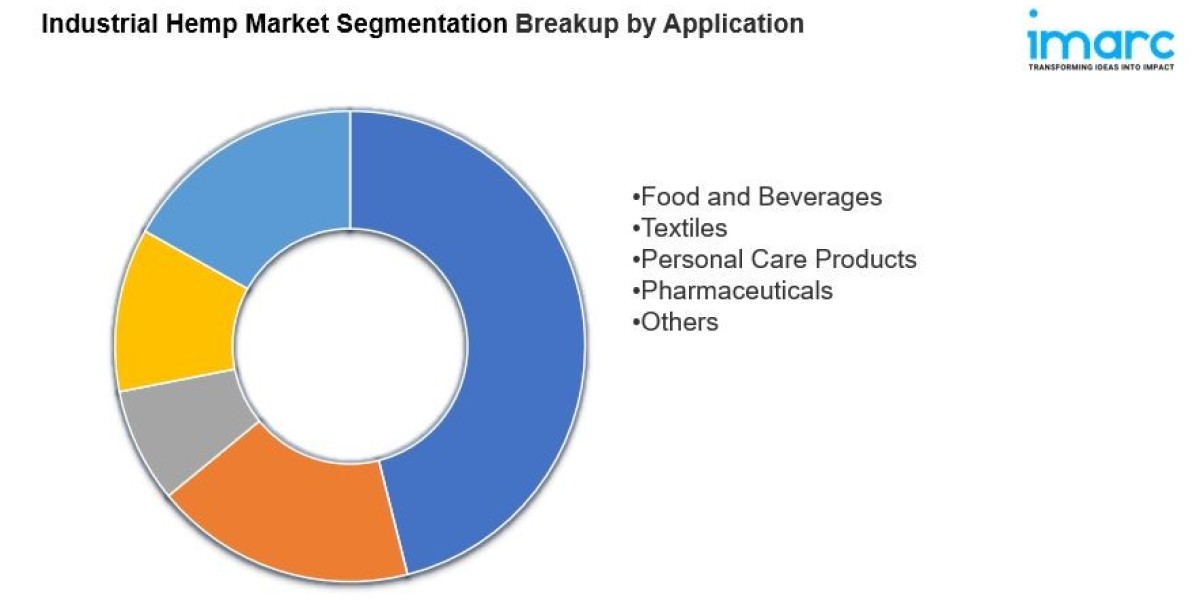Industrial Hemp Industry
Summary:
- The global industrial hemp market size reached US$ 5.4 Billion in 2023.
- The market is expected to reach US$ 19.7 Billion by 2032, exhibiting a growth rate (CAGR) of 15.1% during 2024-2032.
- Asia Pacific leads the market, accounting for the largest industrial hemp market share.
- Hemp seed accounts for the majority of the market share in the industrial segment because it is rich in proteins and essential fatty acids; their nutritional profile makes them highly valued and a common ingredient in health foods and supplements.
- Conventional holds the largest share in the industrial hemp industry.
- Food and beverages remain a dominant segment in the market, driven by the rising demand from consumers for dietary supplements and plant-based, healthful products.
- The rising interest in natural and organic personal care products, as hemp oil and other derivatives are increasingly used for their moisturizing and anti-inflammatory properties in cosmetics and skincare, is bolstering the market demand.
- Besides this, the growing trend towards plant-based diets, leading to increased demand for hemp seeds and protein as nutritious, high-protein food sources in the health food market, is aiding the market growth.
Industry Trends and Drivers:
- Increasing demand for sustainable and eco-friendly products:
One of the most significant factors driving the industrial hemp market is the growing demand for sustainable and eco-friendly products. As consumers become increasingly aware of environmental issues, there is a notable shift towards renewable and biodegradable materials. Industrial hemp is an incredibly versatile crop that requires minimal pesticide and herbicide use, making it an attractive alternative to traditional materials. Its fibers can be used to produce biodegradable plastics, textiles, and construction materials, which contribute to reducing the environmental impact associated with petroleum-based products. The eco-friendly nature of hemp, coupled with its ability to absorb carbon dioxide during growth, is strengthening the market growth.
- Expanding applications across various industries, and favorable:
The expansion of applications for industrial hemp across multiple industries is another critical factor contributing to market growth. Traditionally, hemp has been used for textiles, paper, and building materials. However, its applications have broadened significantly in recent years to include food products, health and wellness s






